'Already Punished': Acquitted Hong Kong Protest Couple Rebuild
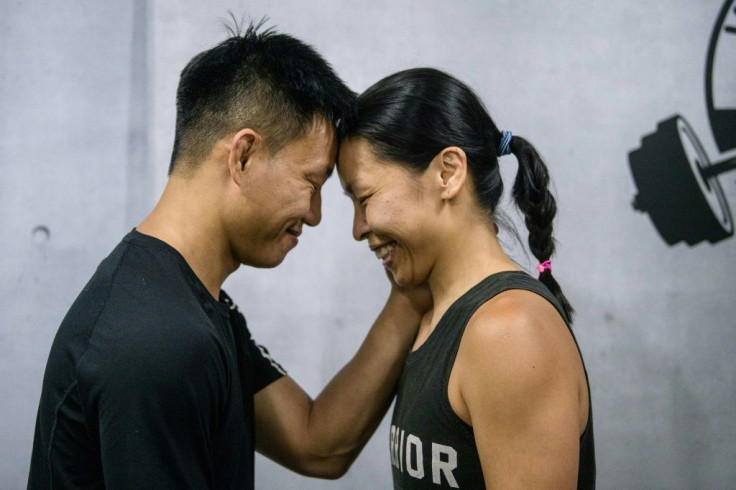
Henry Tong and Elaine To were preparing to spend their first wedding anniversary in separate prison cells -- until their acquittal for rioting during Hong Kong's pro-democracy protests.
There were gasps and tears of relief in court last Friday as a judge declared prosecutors had failed to prove the couple took part in clashes with police last July.
The pair walked free in a ruling that has potential consequences for hundreds of other protesters facing similar charges.
But they have a long journey ahead as they try to rebuild their lives and business.
"We have already been punished," Tong told AFP a day after his acquittal.
Fighting the charges has exacted a heavy mental and financial toll on the pair, who were among the first protesters to be prosecuted for rioting, an offence that carries up to a decade in jail.
Over the weekend they began unboxing all the equipment that had been packed away inside the fitness studio they run in the trendy neighbourhood of Sheung Wan.
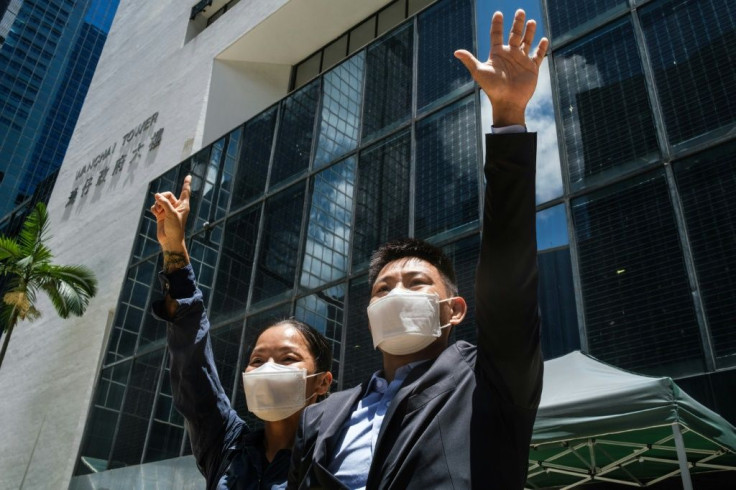
They also collected their three dogs -- who were ready to be taken in by friends and family.
It was a happy moment after nearly a year of stress and strict bail conditions.
"Now we can keep the shop open and we need to make it look cool again," To told AFP.
But the future still looks uncertain.
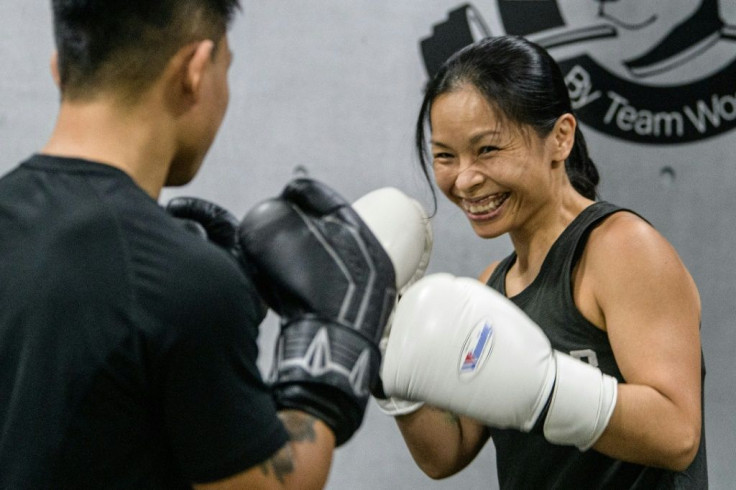
"We suffered a lot financially," Tong said.
Of the more than 9,000 people arrested during the unrest, more than 650 have been hit with rioting charges and trials now fill the city's courts.
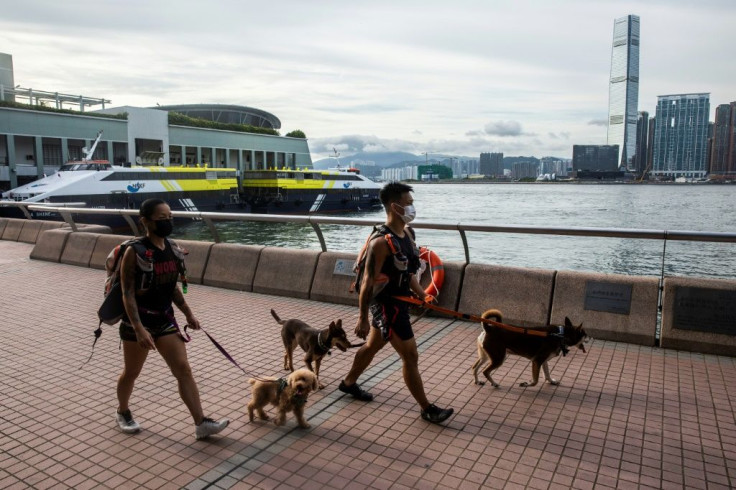
Rioting is a broadly worded colonial-era crime which critics have long argued needs reform.
Under the law authorities can declare any protest a riot if three or more people commit certain violent acts.
Police can arrest anyone present at such a protest for rioting, and have done many times over the last year.
But Tong and To's two-month trial suggests the courts expect prosecutors to prove more than mere presence at a protest to secure a conviction.
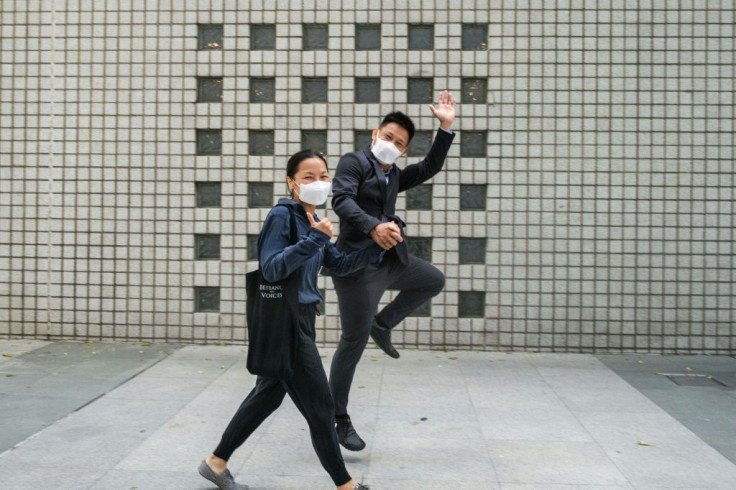
Tong and To were arrested in a side alley along with a teenage girl on July 28 last year during clashes between protesters and police in Sheung Wan.
Prosecutors said they were taking part in the clashes, saying they had gas masks and radios.
Their defence said they were helping people escape clouds of tear gas fired by police, and while they had attended protests they were not participating in street battles.
Presiding judge Anthony Kwok said prosecutors could not provide any direct evidence of the defendants' participation in a riot.
He stressed his ruling conformed with the common law principle that "the benefit of the doubt should go to the defendant".
The couple and the teenager were acquitted of both rioting and attending an unlawful protest.
The one charge that stuck for Tong and To was not having a licence for their radio equipment. But judge Kwok indicated he did not intend to hand down a jail sentence for that when they are sentenced.
Tong said he felt angry that prosecutors had pressed ahead with the case.
"All this shouldn't have happened, if they had spent more time on finding facts and a proper legal basis, instead of forcing the charges," he said, adding that they had sought psychological help with the ordeal of the trial.
Tong and To are now thinking about how to celebrate their first anniversary, having been married four days after they were initially released on bail.
"We couldn't have a honeymoon last year because our travel documents were forfeited," To recalled.
Last year's pro-democracy rallies raged for more than seven months, the culmination of years of rising fears that Hong Kong's unique freedoms are being eroded by mainland Chinese rule.
Mass arrests and the coronavirus brought the cycle of unrest to an end. But resentment towards Beijing still simmers.
Last month China imposed a sweeping national security law on the city, handing authorities a much broader set of tools to prosecute dissenters.
But Tong says he believes Hong Kongers will continue to voice dissatisfaction with how their city is run.
"A political problem can't be resolved with laws," he said.
"Suppression and intimidation will only make people more angry, and eventually, what use will punishment be when some are not even afraid of death?"
© Copyright AFP {{Year}}. All rights reserved.





















